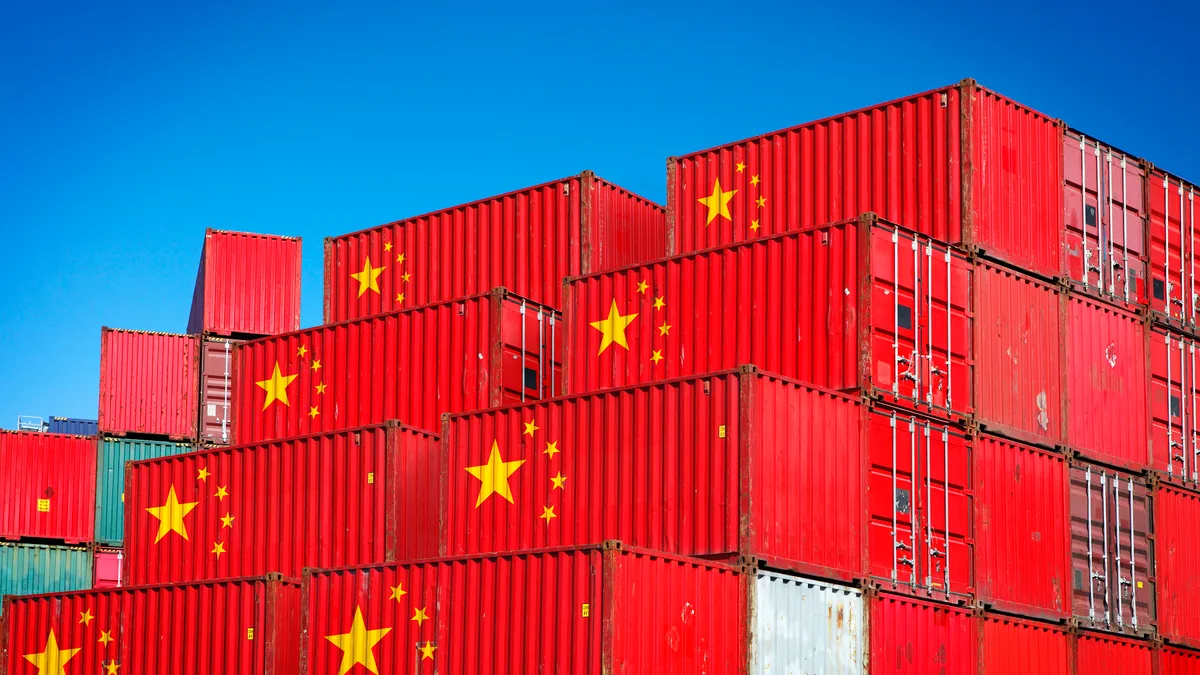Dive Brief:
- The United States will slap a 25% tariff on $50 billion of Chinese imports in June, as the country seeks to punish China for alleged intellectual property abuses.
- The full list of tariffs will not be announced until June 15, but the White House alluded it would cover goods containing "industrially significant technology, including those related to the 'Made in China 2025' program."
- As further action, the U.S. also pledged to continue its World Trade Organization case against China over technology licensing, and restricting investments and exports by Chinese entities seeking to acquire "industrially significant technology."
Dive Insight:
The Chinese Ministry of Commerce's reaction to the tariffs may be the best summary of the most recent trade action.
"We are surprised by the strategic statement released by the White House, but at the same time, it is somewhat expected," the Ministry said in a statement (translation h/t Eunice Yoon, CNBC).
Prior to this week, the trade war appeared to be on hold after both countries publicly agreed to suspend threats of tariffs as they negotiated a new deal. The action, China said, "is obviously against the consensus reached by the U.S. and China recently."
Despite the new tariffs, however, China called for the U.S. to "meet us halfway" while boasting its "confidence, capability" and experience to "defend the core interests of its nation."
The new tariffs may well be another ploy by the U.S. administration to leverage more concessions from its trading rival.
A fact sheet published by the White House lists the trade practices deemed unfair by the U.S. — suggesting the highest risk for tariffs once the full list is released — and includes: China's ban on certain agricultural exports; steel dumping; forced technology transfers on New Energy Vehicles; state-directed acquisitions; and cyber theft.
But in the meantime, supply chain managers are in a bit of a waiting game, preparing for the wide-ranging effects tariffs may have, Lori Fox, vice president of Customs Brokerage Services at American Global Logistics, told Supply Chain Dive in an interview.
"Obviously for items that are already in transit there is nothing you can do about that," she said. But for the rest, supply chain managers should make sure they are speaking with their vendors and customs brokers to avoid delays when the time comes. Shippers should be prepared to face increased inspections from Customs and Border Protection officials, which will have to ensure new trade laws are followed when the tariffs enter into force.
At the end of the day, however, most supply chain managers will just try to protect their bottom line. "Compliance in times like this is extremely important to maintain the trade and flow of goods," Fox said. The cost of non-compliance, after all, could extend from fines and penalties, to a loss of the ability to do trade.













